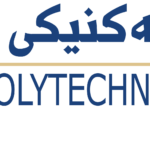- Rebwar Khalid Hamad Mala
- rebwar.khalid@epu.edu.iq
- +9647501524517
-
A metaheuristic is a higher-level procedure or heuristic used in computer science and mathematical optimization to identify, create, adjust, or choose a heuristic (partial search algorithm) that can adequately solve an optimization or machine-learning problem, particularly when there is limited computing power or incomplete or imperfect information available. Metaheuristics are near-optimal solution methods used to solve NP-hard optimization problems. Metaheuristics may be used for a wide range of situations because they tend to make minimal assumptions about the optimization problem that must be addressed.
Due to limitations in time, space, and resources, it is difficult to explore all potential solutions to the many real-world problems encountered. Thus, it is essential to use faster, more cost-effective, and technologically superior techniques. As a result, several algorithms have been developed based on the lives, behaviour, hunting, and self-defense techniques of various species in nature, such as fish schools, krill herds, fox packs, bee colonies, red foxes, and whales. These algorithms are referred to as nature-inspired algorithms (NIAs) because they were developed based on this principle. Considering the abundance of traditional optimization methods, one may naturally wonder why researchers need novel algorithms, such as social algorithms. Traditional algorithms perform well in a wide range of problem types, according to the literature and substantial research; however, they have several significant drawbacks. Traditional algorithms mostly rely on local search and do not provide global optimality in the majority of optimization tasks. Because they often need knowledge, such as derivatives of the local objective landscape, they are typically problem-specific. Multimodal and highly nonlinear issues are too complex for traditional algorithms to handle. They struggle to deal with discontinuity problems, particularly when gradients are required. Because they are often predictable, they have strong exploitation ability, but a poor capacity for exploration and a variety of solutions. In this study, we addressed and improved the above-mentioned problems by proposing a new metaheuristic algorithm.
The GOOSE algorithm, a new metaheuristic algorithm based on the behaviour of geese during rest and foraging, is proposed. The goose balances and stands on one leg to monitor and guard the other birds in the flock. Notably, the GOOSE method is a particle swarm optimization (PSO) -based approach that updates the location of the search agent with the addition of velocity. The GOOSE algorithm is described throughout this work of art along with an explanation of the idea's inspiration.
The accuracy and performance of the proposed algorithm were rigorously verified by testing it on various benchmark functions. The GOOSE algorithm was benchmarked on 19 well-known benchmark test functions, and the results were verified through a comparative study with a genetic algorithm (GA), (PSO), dragonfly algorithm (DA), and fitness-dependent optimizer (FDO). In addition, the proposed algorithm was tested on ten modern benchmark functions, and the obtained results were compared with three recent algorithms: the dragonfly algorithm, whale optimization algorithm (WOA), and salp swarm algorithm (SSA). Moreover, the GOOSE algorithm was tested on five classical benchmark functions, and the obtained results were evaluated using six algorithms: the fitness-dependent optimizer, FOX optimizer, butterfly optimization algorithm (BOA), whale optimization algorithm, dragonfly algorithm, and chimp optimization algorithm (ChOA). The obtained findings attest to the superior performance of the proposed algorithm compared with the other algorithms utilized in the current study. The technique is then used to optimize the welded beam design, Economic Load Dispatch Problem, Pressure Vessel Design Problem, and the Pathological IgG Fraction in the Nervous System, four well-known real-world challenges. The outcomes of engineering case studies illustrate how well the suggested approach can optimize real-world issues.
Comparison of GOOSE statistical results with literature for the welded beam design problem compared to other algorithms such as WOA, PSO, and GSA, where the Goose algorithm ranked third in the list with an average of 3.1882. Also, GOOSE statistics findings are compared with the literature for the pressure vessel design problem, and the method ranks second with an average of (6343.6587) when compared to other algorithms such as WOA, PSO, and GSA. On the other hand, the goose algorithm was used to improve a health problem called (The Pathological IgG Fraction in the Nervous System), and as a result, our algorithm achieved a very good comparative result to the LEO algorithm with an average of (0.00047792). Because this application is newly designed and only optimized by the LEO algorithm, it was compared with the LEO results.
- Erbil Technical Engineering College
- Information Systems Engineering
- Artificial Intelligence (AI) - Optimization


